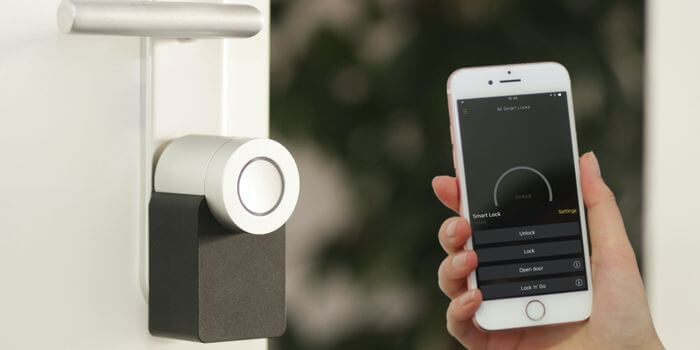As an Amazon Associate, I earn from qualifying purchases
This article walks through configuring SmartThings presence timeouts on iOS and Android to ensure that your device will no longer go to sleep when you are not home.
“Presence Timeouts” means when your phone detects that the person you are trying to connect to is not there any more, it stops sending you notifications to your phone. It works like a timer for WhatsApp, Facebook Messenger, Google Allo and others. In the old days of the smartphone, you used to receive notifications almost every 5 minutes. You would feel uncomfortable after receiving so many messages. But now, presence timeouts allow you to turn off the notification on your phone for a specific amount of time, and if the person you want to talk to is not there, the system will automatically disable notifications for you for a while. It can be a good way to get back to the present moment by not being bothered with the constant interruptions.
Setup Presence Timeouts on iOS and Android
To enable this feature, go to Settings > Notification > Time Out. You can select the type of timeout you want. It can be 30 minutes, one hour or two hours.
It is also possible to create a custom timeout. You can define the time period and the reason why you want to disable notifications. For example, you can set the timeout to 1 hour and disable notifications for someone who has not been texting you for 1 hour.
The best way to manage presence timeouts is to create a smart group called ‘Presence Timeout’. The group should have all your contacts and friends with whom you want to disable notifications. You can set the settings to auto-renew the group.
Turn off your presence sensors when you leave home
This can be done in three ways. The first is to turn off the timer. The second is to turn off the sensor. The third is to completely shut off the phone. Turning off the timer is the easiest way to make sure your phone doesn’t trigger presence timeouts. You can manually turn off the sensors at any time. It is best to keep the sensors turned off whenever you don’t use the phone. If you leave the phone behind, make sure you turn off its presence sensors. This will prevent people from turning on your presence sensors when you are away. Another way to turn off the sensors is to put the phone in airplane mode.
Automatically turn them back on at certain times
The sensors can be turned back on automatically whenever you want. There are different settings available for turning them on. You can choose whether or not you want to turn them on based on your situation. For example, if you are at a restaurant and want to turn them off when you are done eating, you can choose to turn them off at the end of the meal. This will allow you to prevent the presence sensors from triggering when you walk out of the restaurant.
The sensor can also be turned back on automatically whenever you start doing something else. This includes taking a shower, brushing your teeth, having a bath, getting dressed, or doing anything else.
Configure Presence Timeouts on iOS and Android
Android: https://www.google.com/chrome/apps/intl/en/themes/presence_sensor.html
iOS: https://www.apple.com/ios/settings/presence-sensors.html
If you have been using the presence sensors in your iPhone or iPad, you probably know that they can be turned off manually. To turn them off, you will first need to open the Settings app. Then you can go to the Presence section. After that, you can turn the presence sensors off if you want to. If you don’t want to, you can configure the time when the sensors should be turned off.
In conclusion, If you have a home automation system that supports the presence feature, you can use it to set up a timed shutoff for your lights. When you have the timer set to turn on the lights at a specific time, the lights will turn off after that time. The amount of time that the lights are left on is based on the proximity of the person or object that triggers the timer. For example, if you have a pet, you can set up the timer to turn on the lights when you leave the house and turn them off when you return. If you leave the house with the lights on, the timer will turn them off after a set period of time.
